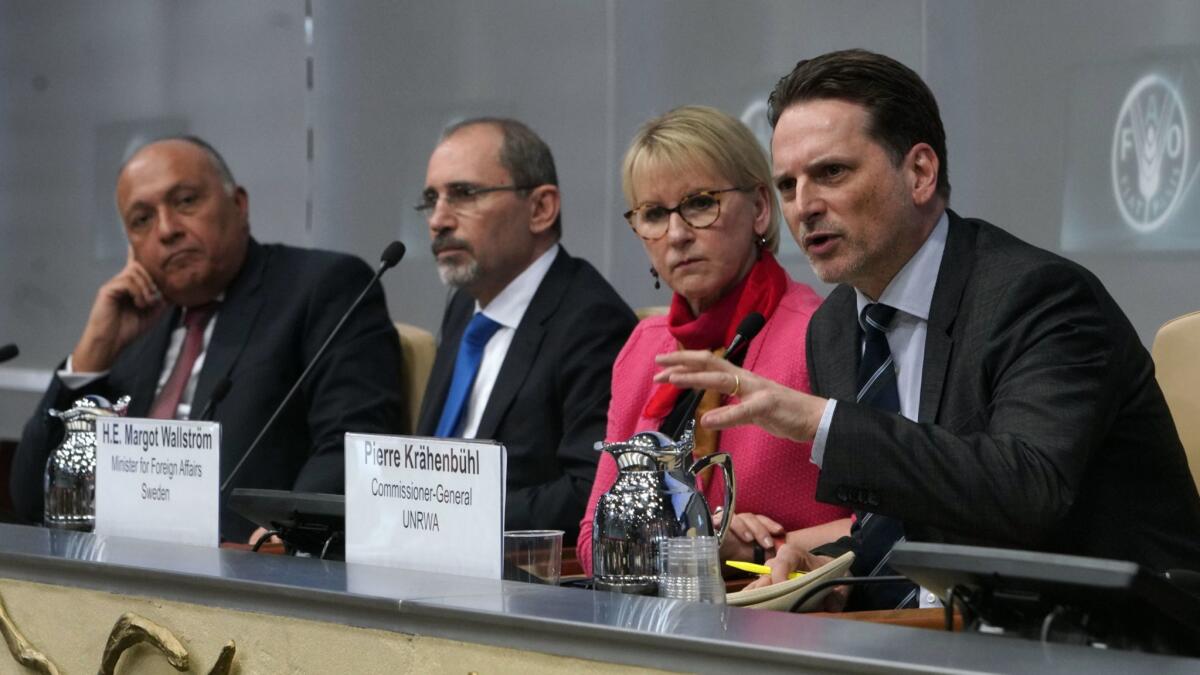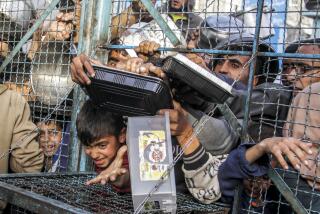After the U.S. pulls its money, the U.N. gets $100 million from other nations for Palestinian relief

The United Nations says a donor conference has produced nearly $100 million in new pledges to help fund the U.N. relief agency for Palestinian refugees this year after the U.S. slashed its aid.
But the U.N. is still running about $346 million short for 2018, and officials warned that critical services could be scrapped if the money doesn’t come through.
Jordan, Egypt and Sweden hosted the emergency donor conference in Rome on Thursday to try to make up for the shortfall. Jordan’s foreign minister, Ayman Safadi, said the conference was “a very successful beginning” but that more fundraising was necessary.
In addressing the funding conference, U.N. Secretary-General Antonio Guterres warned that the relief agency was facing the greatest funding crisis in its 68-year history after the U.S. administration slashed tens of millions in aid.
The agency, the oldest and largest U.N. relief program in the Middle East, provides healthcare, education and social services to an estimated 5 million Palestinians in the West Bank, Gaza Strip, Jordan, Syria and Lebanon.
Cutting sanitation, healthcare and medical services in already poverty-wracked and conflict-ridden areas “would have severe impacts — a cascade of problems that could push the suffering in disastrous and unpredictable directions,” he warned.
The Trump administration announced in January it was slashing $65 million this year. But the agency said the actual cut was about $300 million because the U.S. had led the agency to believe it would provide $365 million in 2018.
The U.S. had been the agency’s largest donor, supplying nearly 30% of its budget. In announcing the cuts in January, the U.S. State Department said it wanted reforms at the agency, which Israel has strongly criticized.
Egyptian Foreign Minister Sameh Shoukry, who along with his counterparts from Jordan and Sweden co-hosted the meeting, said the agency had already undertaken measures to streamline and rationalize its activities. But he said “there is a limit to its ability to do so” given the enormous sustained needs faced by 5 million people.
“It is vital and it is necessary to address these very basic services, but also to provide dignity for multitudes of Palestinians and to [protect] many of them from the potential threats of radicalization and terrorism,” he told reporters.
The agency’s chief, Pierre Kraehenbuel, said expectations in the region were high that donors would step up.
“The message to the Palestinian refugees has to be that they are not forgotten,” he said.
More to Read
Start your day right
Sign up for Essential California for news, features and recommendations from the L.A. Times and beyond in your inbox six days a week.
You may occasionally receive promotional content from the Los Angeles Times.






